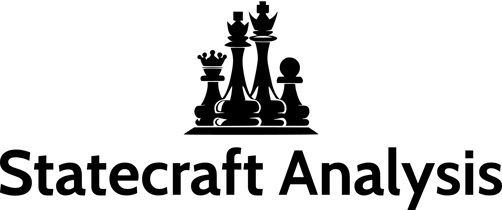Confucian Political Thought: An Exploration
ORIENTAL POLITICAL THOUGHT
Introduction
Confucius, also known as Kong Fuzi, is one of the most influential figures in Chinese philosophy and political thought. His teachings, compiled in the Analects, have left an indelible mark on Chinese society, particularly in the realms of ethics, governance, and social harmony. This essay aims to delve into Confucius's political thought, examining its historical context, key concepts such as Ren, Li, filial piety, Junzi, the rectification of names, the Five Relationships, meritocracy, and education. Furthermore, it will analyze critiques and debates surrounding Confucianism and explore its contemporary relevance.
Historical Context
Confucius lived during a time of political turmoil known as the Spring and Autumn period (771-476 BCE) in Chinese history. This era was characterized by social unrest, moral decay, and the decline of the Zhou dynasty's authority. Confucius sought to restore social order and moral integrity by advocating for ethical governance and personal virtue.
Ren (Humanity) and the Ideal Ruler
At the core of Confucian political thought lies the concept of Ren, often translated as "humanity" or "benevolence." Confucius believed that a virtuous ruler should embody Ren, demonstrating compassion, empathy, and a genuine concern for the welfare of the people. The ideal ruler leads by example, fostering a harmonious society through moral leadership and ethical governance.
Li (Ritual) and Governance
Li, or ritual propriety, plays a crucial role in Confucian governance. It encompasses social norms, etiquette, and proper conduct in interpersonal relationships. Confucius emphasized the importance of observing Li in both private and public life, arguing that adherence to ritual promotes social order and stability. In governance, rituals serve as a means to cultivate virtue and maintain harmony within the state.
Filial Piety and Social Harmony
Filial piety, or Xiao, is another fundamental principle in Confucianism. It emphasizes respect for one's parents and ancestors as the foundation of social harmony. Confucius believed that a society built on filial piety would naturally extend this reverence to broader social relationships, fostering mutual respect and cooperation among its members.
Junzi (Gentleman) and Moral Leadership
The concept of Junzi refers to the ideal moral exemplar in Confucianism. Junzi embodies virtue, wisdom, and integrity, serving as a role model for others to emulate. Confucius envisioned a society led by Junzi who prioritize moral cultivation and self-improvement over personal gain or ambition. Through moral leadership, Junzi inspire others to uphold ethical standards and contribute to the common good.
Rectification of Names
Confucius advocated for the rectification of names as a means to restore linguistic precision and moral clarity in society. He believed that using language accurately and appropriately was essential for maintaining social order and ethical conduct. By aligning words with their true meanings and responsibilities, Confucius sought to eliminate confusion and deception, fostering trust and integrity within interpersonal relationships and governance.
Five Relationships
Central to Confucian ethics are the Five Relationships, which outline the proper conduct and responsibilities between individuals. These relationships include ruler-subject, father-son, husband-wife, elder brother-younger brother, and friend-friend. Confucius emphasized the importance of fulfilling one's role within these relationships with sincerity, benevolence, and respect, as they form the fabric of social harmony and stability.
Meritocracy and Education
Confucianism promotes a meritocratic system based on talent and virtue rather than birth or social status. Confucius believed that individuals should be appointed to government positions based on their moral character, wisdom, and competence rather than familial connections or political influence. Education plays a crucial role in this meritocratic ideal, as it cultivates virtue, fosters intellectual development, and prepares individuals for leadership roles in society.
Critiques and Debates
Despite its enduring influence, Confucianism has faced criticism and debate throughout history. Critics argue that Confucian emphasis on hierarchy and obedience stifles individual creativity and innovation, potentially leading to social stagnation. Additionally, some question the relevance of Confucian values in modern, pluralistic societies, where diverse perspectives and cultural norms coexist.
Contemporary Relevance
Confucian principles continue to shape political discourse and social practices in contemporary China and beyond. In China, the government has increasingly turned to Confucianism as a source of moral and cultural legitimacy, promoting Confucian values in education and governance. Moreover, Confucian ideals of harmony, social responsibility, and ethical leadership resonate with global efforts to address pressing challenges such as inequality, environmental degradation, and political polarization.
Conclusion
Confucius's political thought offers a compelling vision of ethical governance, social harmony, and moral leadership. Rooted in the principles of Ren, Li, filial piety, and Junzi, Confucianism provides a framework for fostering virtuous conduct and promoting the common good. While subject to critiques and debates, Confucianism remains relevant in contemporary society, offering valuable insights into the pursuit of justice, compassion, and the well-being of humanity.
References
Confucius. "The Analects."
Ames, Roger T., and Henry Rosemont Jr. "The Analects of Confucius: A Philosophical Translation."
Yao, Xinzhong. "An Introduction to Confucianism."
Bell, Daniel A. "China's New Confucianism: Politics
